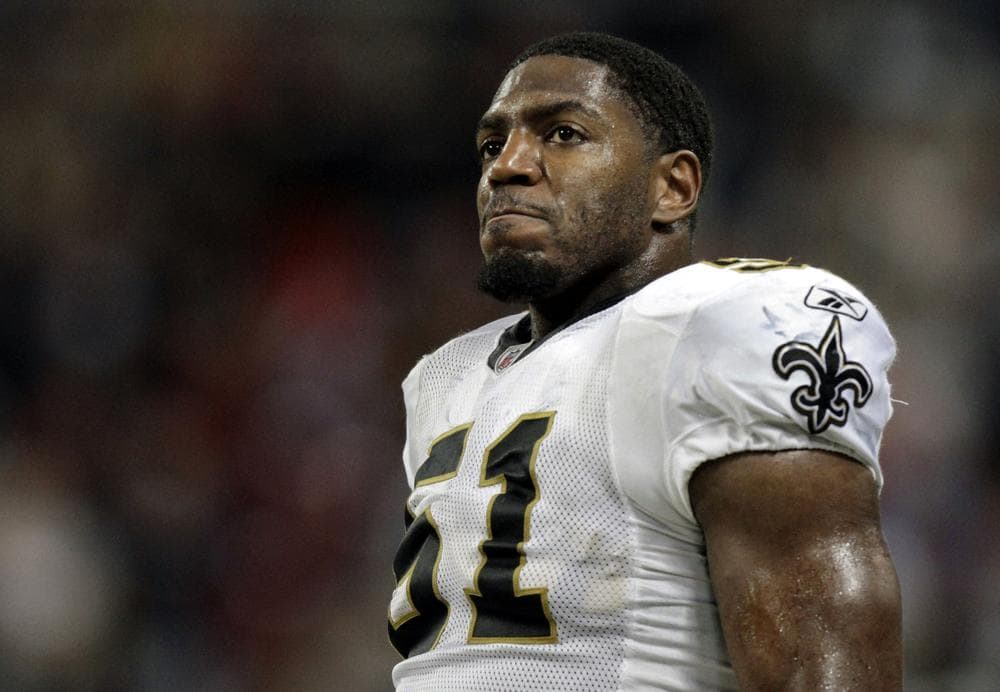Advertisement
Interview
NFL Bounty Suspensions Lifted

On Friday, a three-person arbitration panel delighted Jonathan Vilma, Will Smith, Scott Fujita, and Anthony Hargrove by ruling that they could play football on Sunday.
The four NFL players, two of whom are still with the New Orleans Saints, had been suspended by Commissioner Roger Goodell in connection with the so-called bounty scandal.
Michael McCann, director of the Sports Law Institute at Vermont Law School and Sports Illustrated's legal analyst, joined Bill Littlefield.
BL: What's the nature of this arbitration panel?
MM: The arbitration focused on the extent of powers that Roger Goodell has to discipline players. And the unique part of bounties is that although they relate to conduct, intentionally trying to hurt people, they have another aspect to them that may not within his power. That's ... the pay-for-performance aspect, so that when bounty players were incentivized to hurt others, it could be construed as a side employment agreement between players and a team. And the significance of that ... if it's a side-employment agreement, it doesn't fall within the personal conduct policy.
Goodell could reissue under a separate rationale and that's that the conduct was detrimental to the league. So it's a mixed ruling, but certainly is a ruling that Goodell didn't want to see.
You've been following these circumstances since Commissioner Goodell suspended the four players, as well as three coaches and a general manager. Were you surprised by the panel's decision?
A little surprised, to be honest. I thought bounties is conduct that's clearly detrimental to the league, that it's not just about the side agreement, it's about the integrity of the game. It's embarrassing the game and to be frank, I think the league's argument was a little bit stronger than the [NFL Players Association's] argument. But the arbtration panel obviously disagreed.
The ruling will not affect Saints Head Coach Sean Payton, two of his coaches, or general manager Mickey Loomis, all of whom were suspended. Why not?
It doesn't affect them because they don't get the same protections under the collective bargaining agreement. Sean Payton's employment contract with the Saints dictates that he has to accept NFL judgments in terms of a whole bunch of things, including discipline. ... He's just not part of the union.
Do you feel that this ruling by the arbitration panel has, in any way, undermined the commissioner's authority or weakened it?
Well, it does in the sense that it's a sign that players and the union will fight against the commissioner. They're willing to go to court. They're willing to use arbitration, lawsuits. And this may make the commissioner less willing to these independent investigations without more collaboration with the players' association. So in that regard, I think it does limit [Goodell's] authority. On the other hand, bounties are unique. If we look at how [he] has used the personal conduct policy where he is judge, jury and executioner, it typically involves situations where there's more clear power for him. A player being arrested off the field, something like that. I don't think it's going to change his power in that regard. ... What I think it does is it sends a message that maybe he needs to be a little more collaborative with the union.
This segment aired on September 8, 2012.